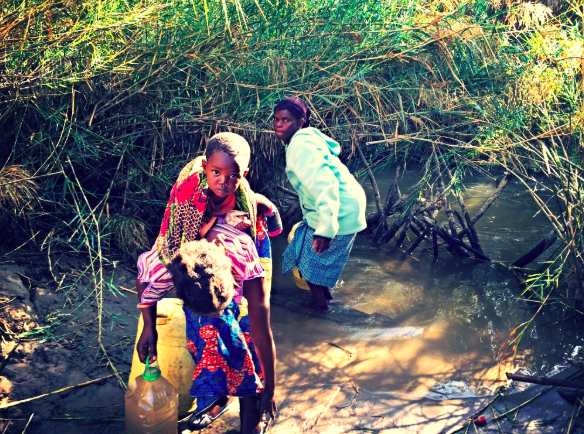(London, 14 January 2019) – On 15 and 16 January 2019, the UK Supreme Court will hear a case of crucial importance for victims of corporate human rights violations. The case, Vedanta Resources Plc and Another v Lungowe and others, is brought by leading human rights law firm Leigh Day on behalf of over 1,800 Zambian citizens who say Vedanta Resources, a UK company, and its Zambian subsidiary, Konkola Copper Mines Plc (“KCM”), polluted local water sources causing damage to their land and livelihoods.
Local residents explained in a statement:
“Villagers along the River Kafue as well as Chingola residents have suffered severe pollution of water sources ever since Vedanta took over the mines. Despite our twelve years of legal campaigning in Zambia, nothing has been done to improve the desperate situation for the most affected communities, where land is poisoned and people are very sick. People used to think British mining companies were better, but Vedanta are one of the worst foreign investors in Zambia.”
The question of whether local people in Zambia can obtain justice and compensation from a mining company based in the UK is central to the case.
In our globalized world, large corporations like Vedanta operate through a web of different corporate entities based in jurisdictions around the world. Doing so offers advantages, such as access to cheap labour and preferential tax treatment. Corporations enjoy these advantages in part due to the legal presumption that corporate entities are separate, even when they are part of the same corporate group.
Yet while that legal presumption of separation may be justified in some commercial contexts, maintaining it to avoid responsibility for human rights violations is simply wrong. The effect is that it places business interests over those of people whose lives are blighted by corporate malpractice.
Nevertheless, companies have repeatedly used this artificial distinction as a means to avoid responsibility for the harm their business operations cause. In the case of Vedanta, for example, the company denies that it exercised control over its Zambian subsidiary, KCM, or that it owes any duty of care to the Zambian victims whose livelihoods and health have been so badly affected by its mining operations.
The Zambian claimants argue that Vedanta, the parent company, did exercise control over KCM, and that in doing so owed them a duty of care. Amongst other arguments, they say Vedanta financed KCM’s operations by providing approximately $3 billion, and guaranteed external loans. They also say Vedanta reported having a “governance framework” issued by the company in London to prevent contamination of the local environment in Zambia.
The legal question of whether the parent company can be held accountable under civil law for human rights violations and environmental harm caused by its subsidiary is what the Supreme Court judges need to decide.
The legal question is not unique to Vedanta and Zambia. It is central to the ability of many victims of serious human rights violations to access justice. Already there are two further cases by victims of such violations awaiting the decision by the judges: Okpabi and others v Royal Dutch Shell and another and AAA and others v Unilever Plc and another. In the former, Nigerian residents of the Niger Delta are seeking compensation from oil giant Royal Dutch Shell and its Nigerian subsidiary for pollution and environmental devastation caused by leaking pipelines operated by Shell’s subsidiary. In the other, employees of a Unilever tea plantation in Kenya are suing Unilever and its Kenyan subsidiary for failing to protect them from beatings, rape and killings on the plantation during the 2008 Kenyan elections.
In an opening move to prevent the merits of the claimants’ cases from being heard, the corporate defendants have challenged the jurisdiction of UK courts to hear the case. Partly because claimants at such a early stage lack access to key information from the corporate defendants to which they would be entitled if their case proceeds, the judges need only find that the claimants have an arguable claim for it to go ahead.
To date, British judges have arrived at different conclusions in the three cases. Court of Appeal judges found for the claimants in Vedanta meaning that their claim may proceed in the UK, which is the decision Vedanta and KCM are challenging. But in Okpabi and Unilever, the Court of Appeal judges found against the claimants, denying them the right to continue. The different conclusions demonstrate the need for clarity on the issue of parent company liability. So far, in none of the case have the merits of the case been heard.
The UK, a signatory to key international human rights treaties, has a responsibility to advance access to justice for victims. Victims, such as those in Zambia, frequently face significant obstacles to seeking justice in their home countries. But there are promising signs that judges in countries like Canada and the Netherlands will allow victims to bring claims for corporate human rights violations where the parent company is based.
The UK Supreme Court decision in the Vedanta case will test whether Britain will keep up with, or even be at the forefront, of this trend, or whether it will prevent overseas human rights victims of British companies from seeking justice in the UK courts.

